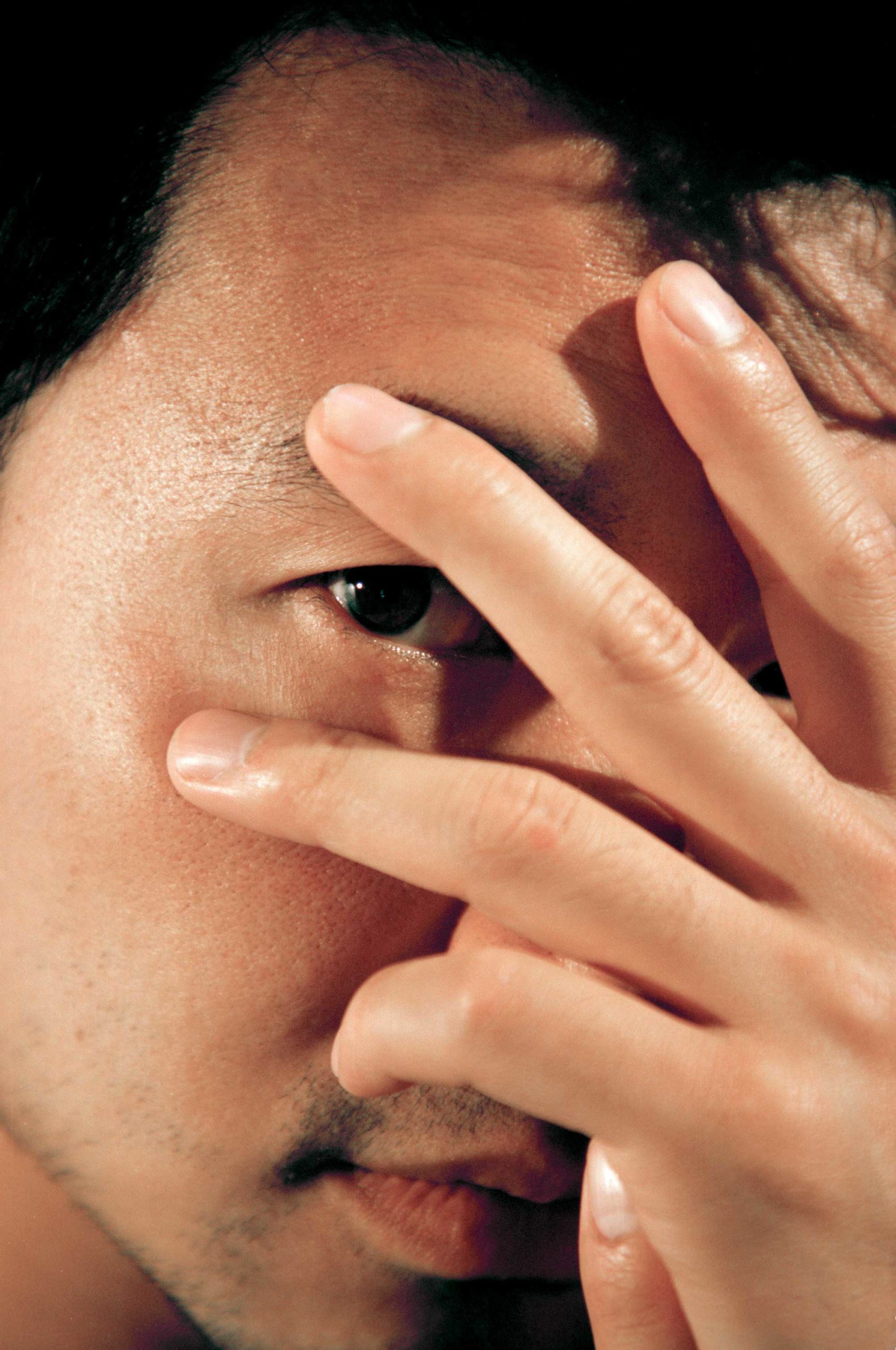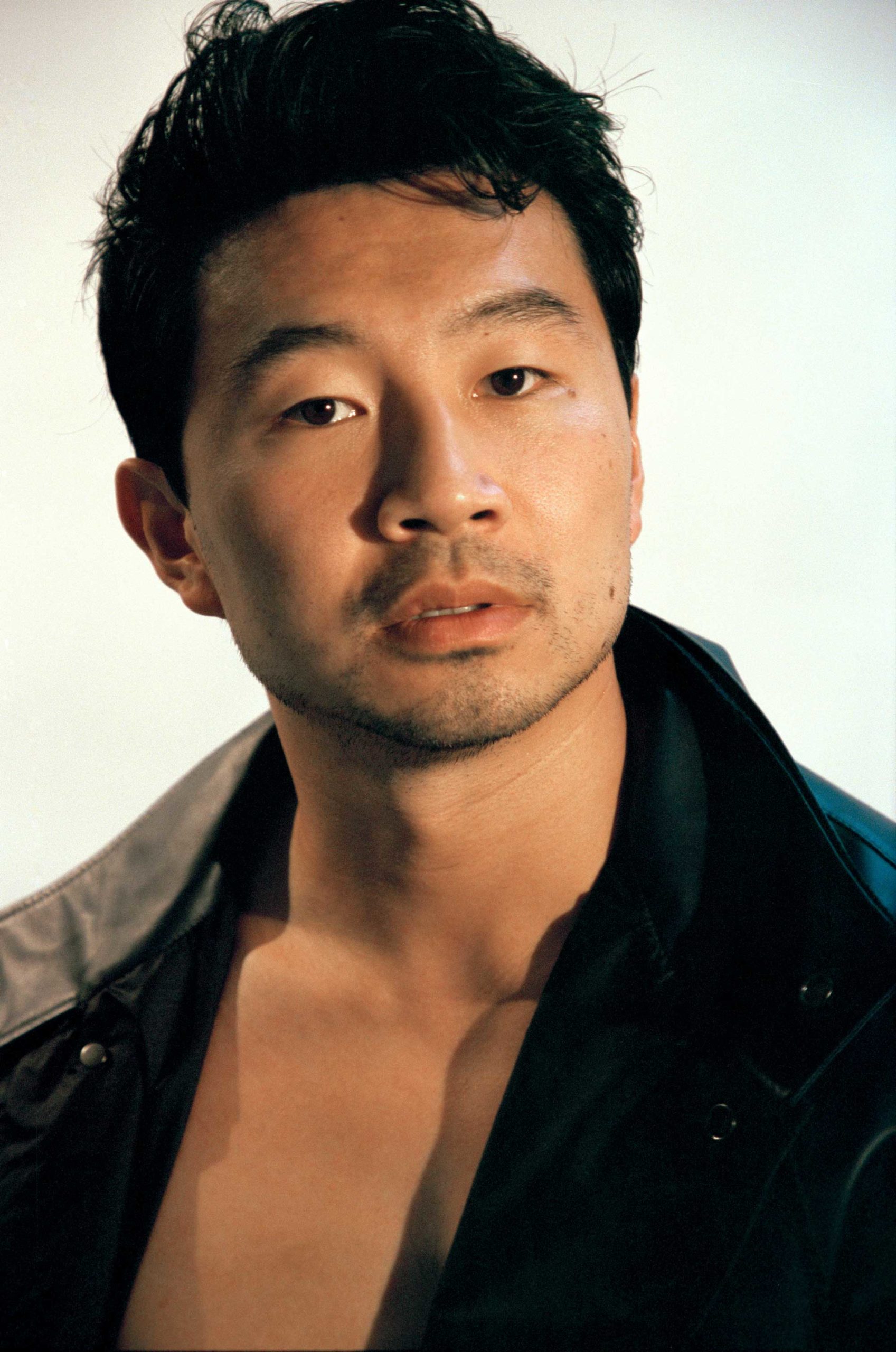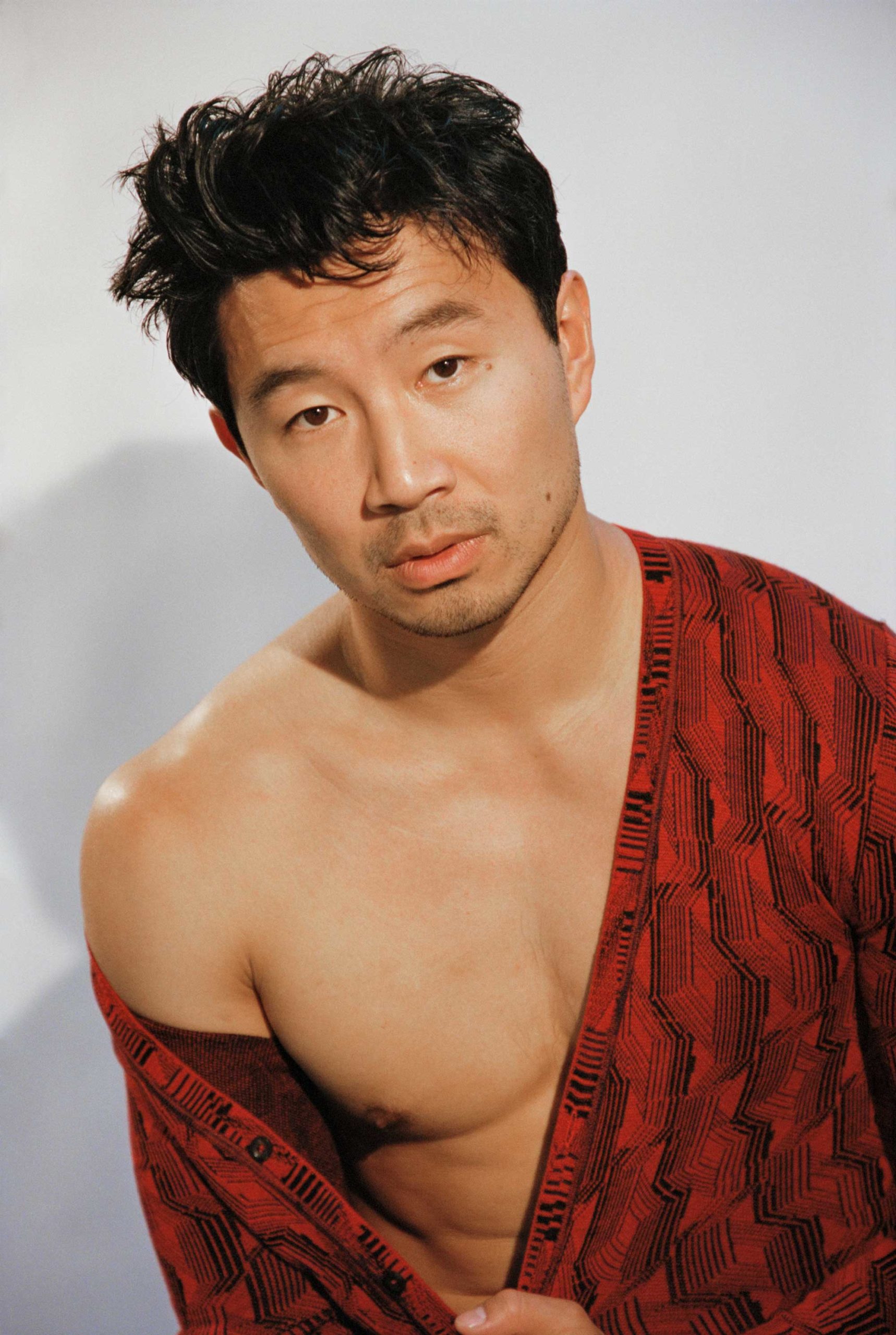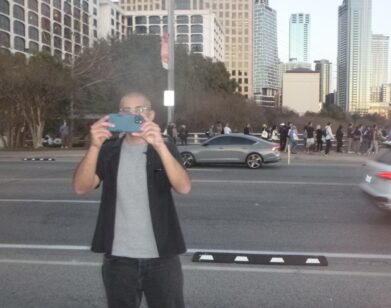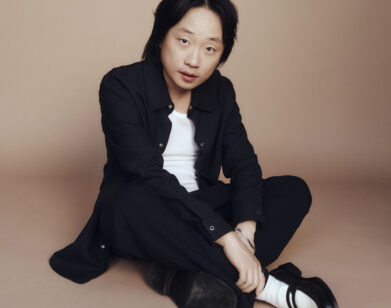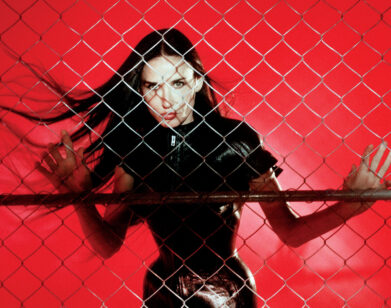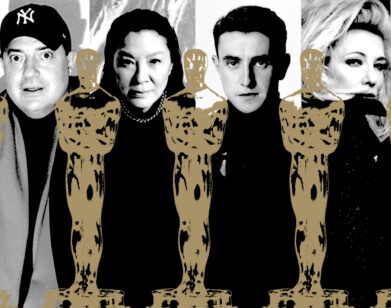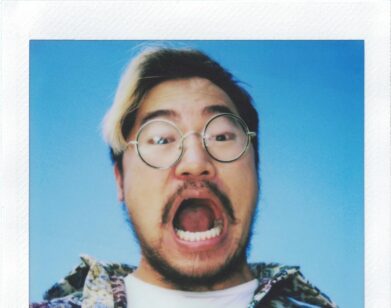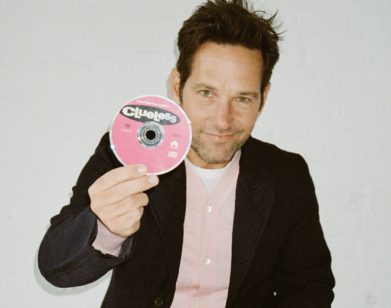Leading Man
Simu Liu on His Journey from Scared Asian Guy to Marvel Superhero
On July 17, 2014, Simu Liu, at the time a young Canadian actor in the early stages of his career, sent out a single tweet: “Hey @Marvel, great job with Cpt America and Thor. Now how about an Asian American hero?” Almost five years later to the day, Liu responded to his own tweet with a simple but emphatic “LOL.” The performer, now 32, was reacting to the revelation that he had just been cast as the title character in Marvel’s Shang-Chi and the Legend of the Ten Rings, marking the entry of the first Asian superhero into the company’s multiplex-conquering cinematic universe. By that point, Liu had been known mainly for his role on the Toronto-set sitcom Kim’s Convenience, making his leap into Hollywood’s most successful franchise that much more dramatic. Shang-Chi features a mostly Asian cast, including Awkwafina, Michelle Yeoh, and the Malaysian comedian Ronny Chieng, with whom Liu bonded when the production shut down during the early stages of the pandemic. Stuck in a hotel in Sydney for four months, they shot hoops, worked out, and, as evidenced by the conversation that follows, made fun of each other. A lot. —BEN BARNA
RONNY CHIENG: Good to see you, man. Haven’t seen you in person for a while. I guess my first question is, you had this great opportunity, the role of a lifetime, and then, right in the middle of production, everything shut down. Were you confident that it would start back up again or did you have a more nihilistic view?
SIMU LIU: I was probably more optimistic than I should have been. I’ve always had a bit of delusional confidence. I think it’s the same delusional confidence I had when I first decided to become an actor as a 23-year-old failed accountant with absolutely zero training or idea about how the business worked.
CHIENG: I’ve read your book [We Were Dreamers: An Immigrant Superhero Origin Story], and a big part of your origin story as an actor is the chip on your shoulder. It’s something you talk about a lot. Do you still have that chip on your shoulder?
LIU: I do, and to your point, it’s how I would describe myself not only throughout my career as an actor, but throughout my whole life. In school, you go through a moment where social hierarchies form, and I knew from the beginning that I was on the very bottom of that hierarchy. Whether that had to do with race, or just the fact that I was not an interesting person, I was unpopular, and that affected me. I was never The Guy and I always wanted to be The Guy, and that continued into sports. I went to a private school full of nerdy kids in Toronto, and we basically lost every game.
CHIENG: You went to a nerdy school and you still weren’t the popular kid?
LIU: Did you see 21 Jump Street, where they go back to high school and all the cool kids are actually these well-to-do, environmentally conscious, intelligent people? I came into that school wanting to be the athletic kid, and it didn’t work out at all. I spent the better part of my young life searching for people’s approval and validation, and not getting any of it.
CHIENG: And you carried that into your professional life?
LIU: Definitely. As an actor of color, I was overlooked at every possible opportunity. I was given roles that were almost not roles. It was, like, Scared Asian Guy. Whether I was a scared Asian guy in front of a computer or a scared Asian guy getting robbed in the grocery store, I always played these pathetic, low-status characters.
CHIENG: When we complain about show business, it’s very easy for people to dismiss us as not being talented enough or just trying to get attention. It’s very hard to describe systemic issues the way you’re describing. Even if we don’t get the role, it’s like, “Yo, this role isn’t good for the culture.” Obviously, the chip on your shoulder worked out for you, but looking back, do you feel like you could have toned it down a bit, or was that exactly what you needed?
LIU: To be totally honest, the chip has been very unhealthy at times, as I think it is for everyone who is always focused on the negative aspects of everything. It’s like you don’t care how much you’ve accomplished, because all you see are the people who are disrespecting you or who have passed you over. I auditioned for Crazy Rich Asians four times and it was very, very hard for me to not get it, because it was like, these Crazy Rich Asians people were the cool kids and I was the one being left out. And then you all had a reunion on the set of Shang-Chi and were like, “Remember the time when…” And I was like, “No, guys, I don’t remember. I wasn’t in Crazy Rich Asians.” While I do believe whole-heartedly that it has been a major motivator in my life, I think if I were to set goals for myself in the next ten years, one of them would be to work for the culture and for what I believe is good and compelling art, rather than being driven by my need for the approval of others.
CHIENG: Another hallmark of the way you express yourself is that you make yourself very accessible to fans. When we were in production, I remember you told me that you’d organized your own online conferences for aspiring actors to help them try to figure it out. I guess my question is, why the fuck are you doing that?
LIU: In the case of those seminars, I think I got it in my head that I’ve made it through so many impossible hurdles and gotten to a place where I have a bird’s-eye view of the industry. When you’re starting out, so much of our industry consists of barriers and gates and not being able to see the bigger picture, and it can be extremely debilitating to not know what the path is. Any other job you get into, you understand the career progression. There’s a logic to it. There’s no rule in acting. It’s equal parts hustle and grind, and total fluke and opportunity. What I wanted to get across to those people is that the system is not set up for actors to be successful. If you’re the average person and you’re like, “I’m going to only do what the system wants me to do, which is to get an agent, wait by the phone, and audition until I book a role,” the odds of you succeeding are infinitesimally low, effectively zero. If you look at any of the people who have broken out in Hollywood, it’s usually because they’ve done something disruptive. The purpose of those seminars was to encourage people to think outside the box. I wasn’t outright telling everyone to go get on TikTok, but that’s certainly a way.
CHIENG: Or in your case, desperately beg for roles on Twitter until you get them.
LIU: Thank you.
CHIENG: Has there been a downside to being more accessible?
LIU: Yes, and I didn’t know it right away. In the beginning, I was on a show called Kim’s Convenience, and we were just happy that anybody watched the show, so we all set up our Twitters and responded to every single person that tweeted about the show. As the profile of the show grew, and as my profile grew, and after I booked the Marvel role, I was like, “Oh, people feel like they can say anything to me.” I get a lot of opinions and backlash in ways that other actors don’t.
CHIENG: What do you want to be?
LIU: I’d love to be People’s Sexiest Man Alive.
CHIENG: Your jokes won’t come across in writing, man.
LIU: Okay, we’ll strike the joke. I’d like to be someone who helped to legitimize Asian-American culture. We’re in the infancy of discovering what Asian-American identity is, and for the non-Asian people reading this, I think even they will have trouble distinguishing between Asian people who grew up in Asia and Asian people who grew up in North America. They are completely different lived experiences and completely different struggles. A Chinese person growing up in China has never had to turn on a TV and watch himself being portrayed in a really stereotypical way, whereas people like me who grew up in the West, we had to deal with that every day, and we have the complexes that have arisen from that. And if there’s one thing that I can do through storytelling, it would be to make Asian Americans or Asian Canadians feel a bit more grounded in where they are, to feel like they have a sense of belonging and a sense of pride in their identity.
CHIENG: I hope some of that is usable.
LIU: [Laughs]
CHIENG: What challenges do you think an Asian superhero would face that superheroes of another race wouldn’t?
LIU: The burden of being the first. It can be difficult because you’re being anointed to this platform where, if it’s only you, then you must speak for an entire people, and I think it’s maybe a bit easier when the lived experiences of your people are generally the same, but Asian Americans are so fragmented. There are people whose parents and grandparents came from different countries. Our experiences are not monolithic. There’s a great range. You could be a shitty comedian from Malaysia, or an extremely good-looking Chinese-Canadian actor. There’s a plethora of diversity.
CHIENG: [Laughs]
LIU: The truth is, it’s tough to appease everybody, and I think that’s the burden I have and that certain people in my position will have, rather than somebody who is white and doesn’t feel the pressure to constantly represent, or speak out on issues. When the Atlanta shootings happened, myself and some of my Asian friends that we know and love—Olivia Munn, Ken Jeong, Jeremy Lin—started trying to figure out how to use our platforms to effect social change. And then I was looking over at some white actors’ Twitters and they get to crack jokes and completely ignore the situation and not face any backlash for it. I’m not saying I want to do that, but just realizing that life goes on for those people—well, we don’t have a choice. If something happens, we have to mobilize. It’s our responsibility.
CHIENG: That’s a great answer. Interview, have I done enough free work for you yet? We can keep going, but I’m worried they don’t want to transcribe all your garbage for longer than 30 minutes.
LIU: That’s fair.
CHIENG: When you were cast as Shang-Chi, there was some debate online about whether or not you’re ugly. End the debate: Are you ugly or not?
LIU: That’s a great question. I will answer by saying that I found myself at the center of a massive debate between Eastern and Western beauty standards that’s being blown out of proportion. It’s coming from a general sense of unease that Chinese audiences get whenever they see a Hollywood movie about Asian people. I think they’re right to have that skepticism. Hollywood has gotten it wrong more times than they’ve gotten it right, so any attempts, at least in the beginning, will be met with skepticism. The best thing to do is just to say, “Hey, wait and see. Be patient.” And I fully recognize that I am not good-looking enough to trump that debate. If I looked like Chris Evans, there would be no debate, but I think I’m just good-looking enough that people on one side would be like, “Dude, this guy is good-looking,” and then I look just ugly enough so that the people on the other side would be like, “What the fuck are you talking about? This guy is ugly.”
CHIENG: You’re like that sound file that no one can tell if it’s saying Yanny or Laurel.
LIU: Was I prepared to find myself at the center of a greater political debate about my appearance? No. But I will say that growing up, I was obsessed with being good-looking, whether it was because I was an Asian man and I felt emasculated my whole life, or whether it was because I just wanted validation from women. But something happened around the time that I booked Shang-Chi. It wasn’t so much a realization that I was painfully average, although that certainly did come, but it was this idea that who you are is more than your appearance. I had associated so much self-worth with my appearance that when I was auditioning for Shang-Chi, I was like, “I’ve got no chance. There are so many people who are taller, more handsome, and more jacked.”
CHIENG: One hundred percent.
LIU: I was at a point where I was like, “I don’t deserve this role. What about me makes me worthy?” And ultimately, what I came to was that my self-worth doesn’t come from my appearance. It comes from whatever is going on underneath, whether you want to call it personality or charisma—that was going to be the thing that won me the role.
CHIENG: Congratulations on discovering at 30 what the rest of us figured out at 21.
LIU: Look, I’ve been behind my whole life, but thank you for pointing that out. You have this amazing ability to dig into someone’s deepest insecurities.
CHIENG: Well, that’s my superpower.
—
Grooming: Mira Chai
Photography Assistant: Josephine Chumley

